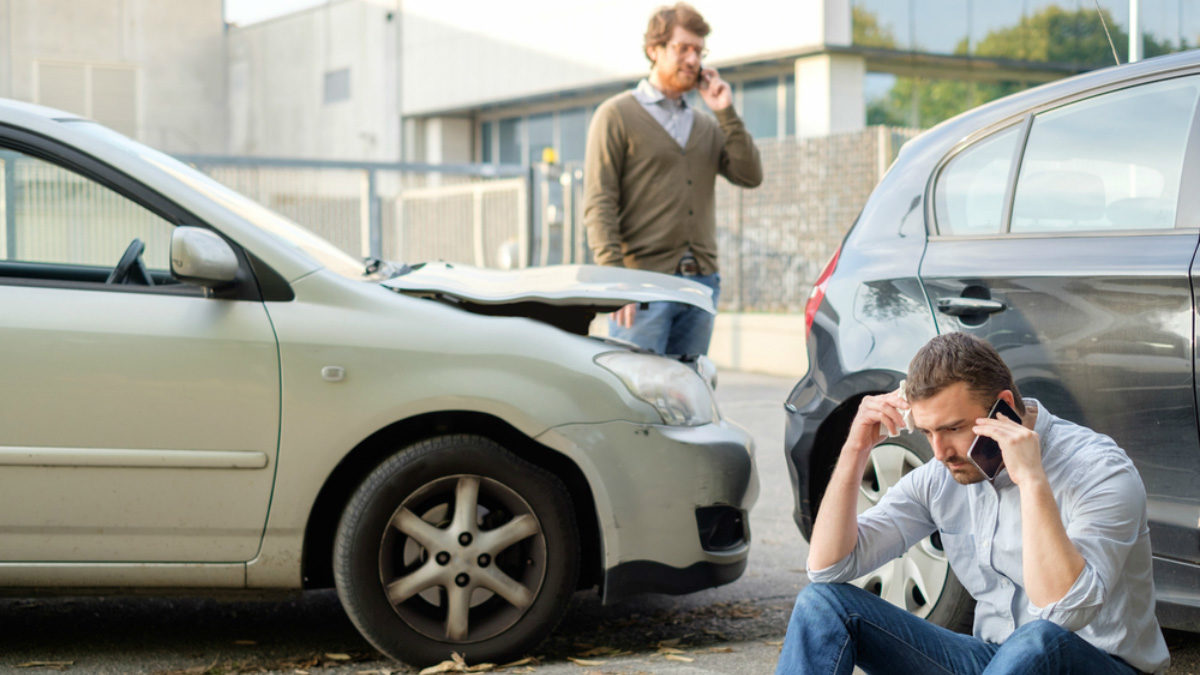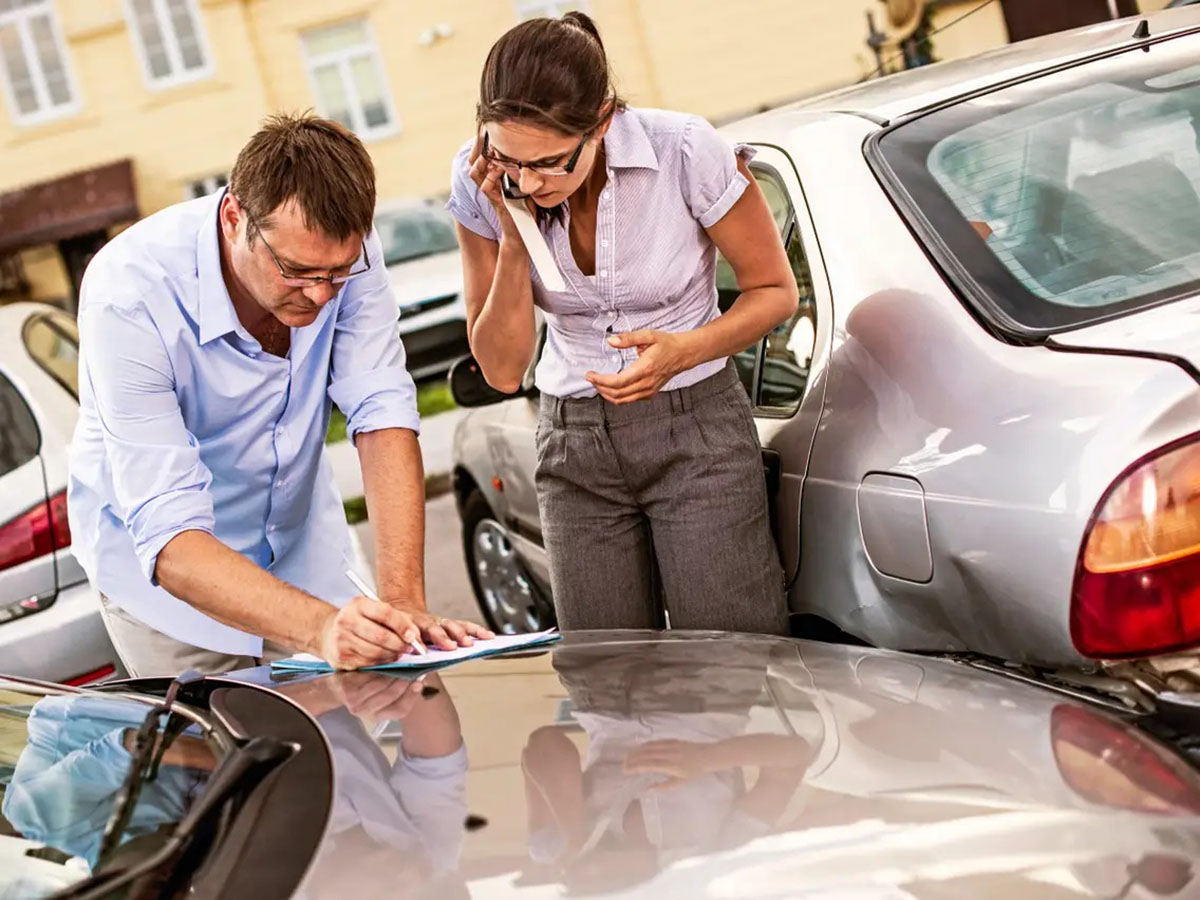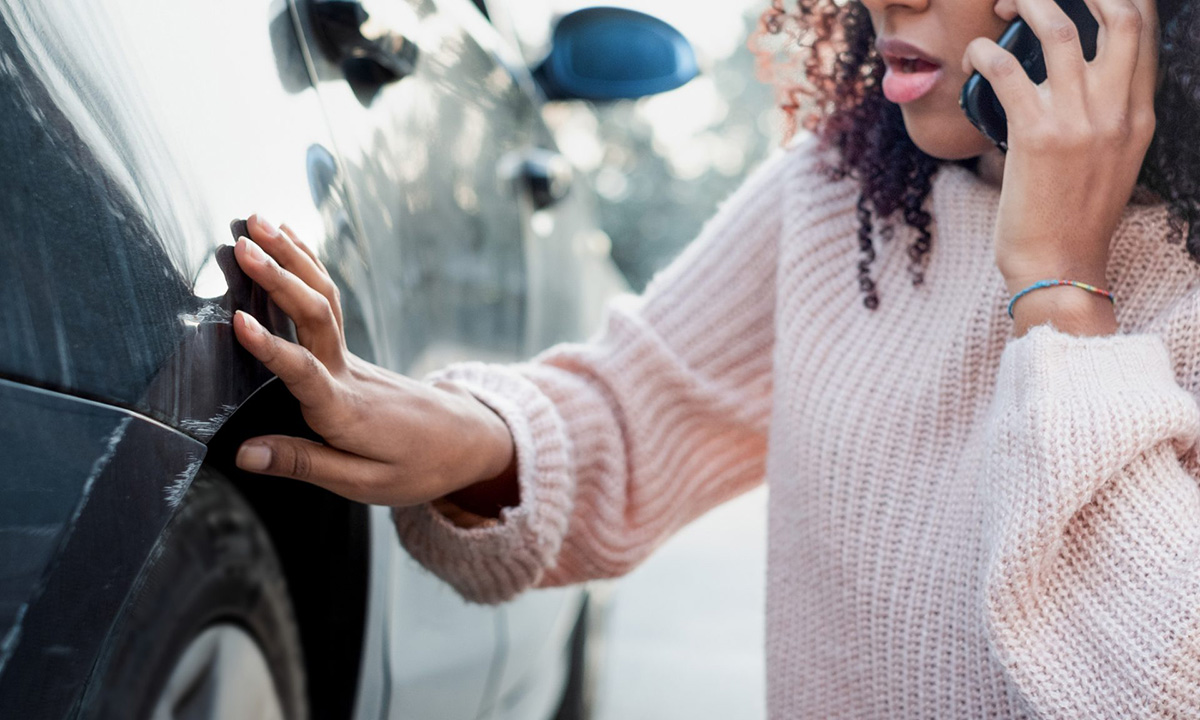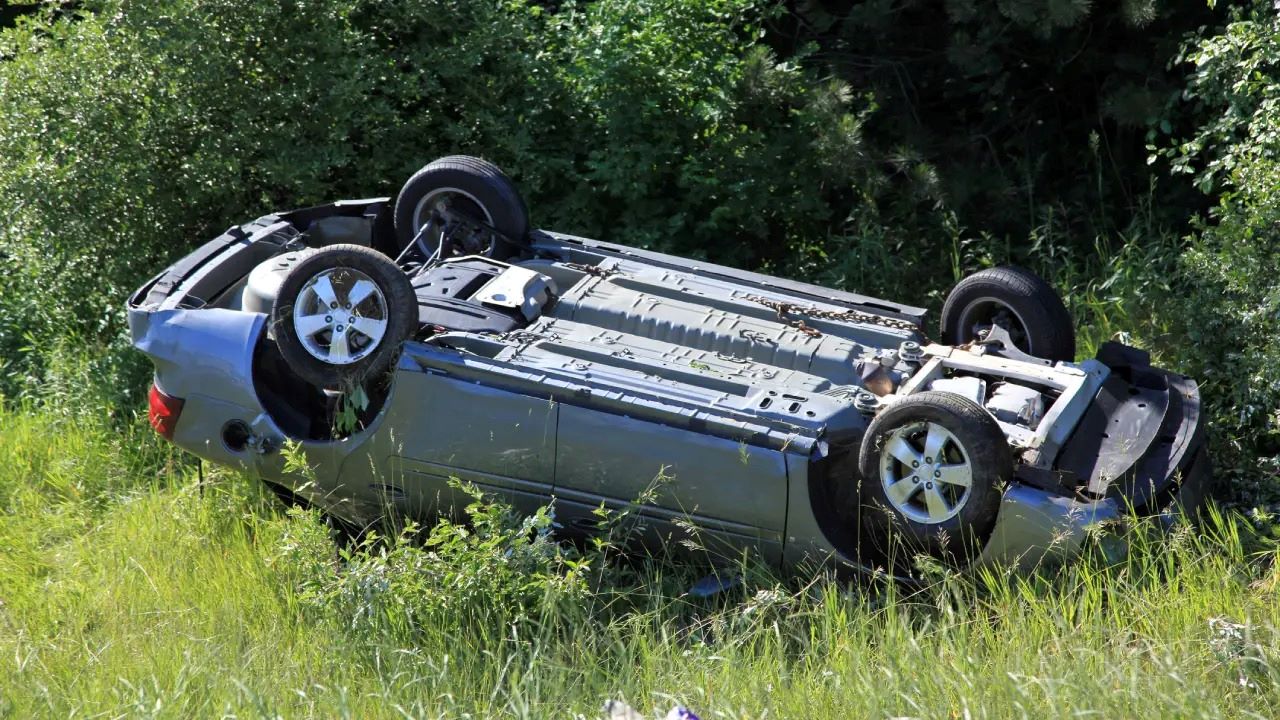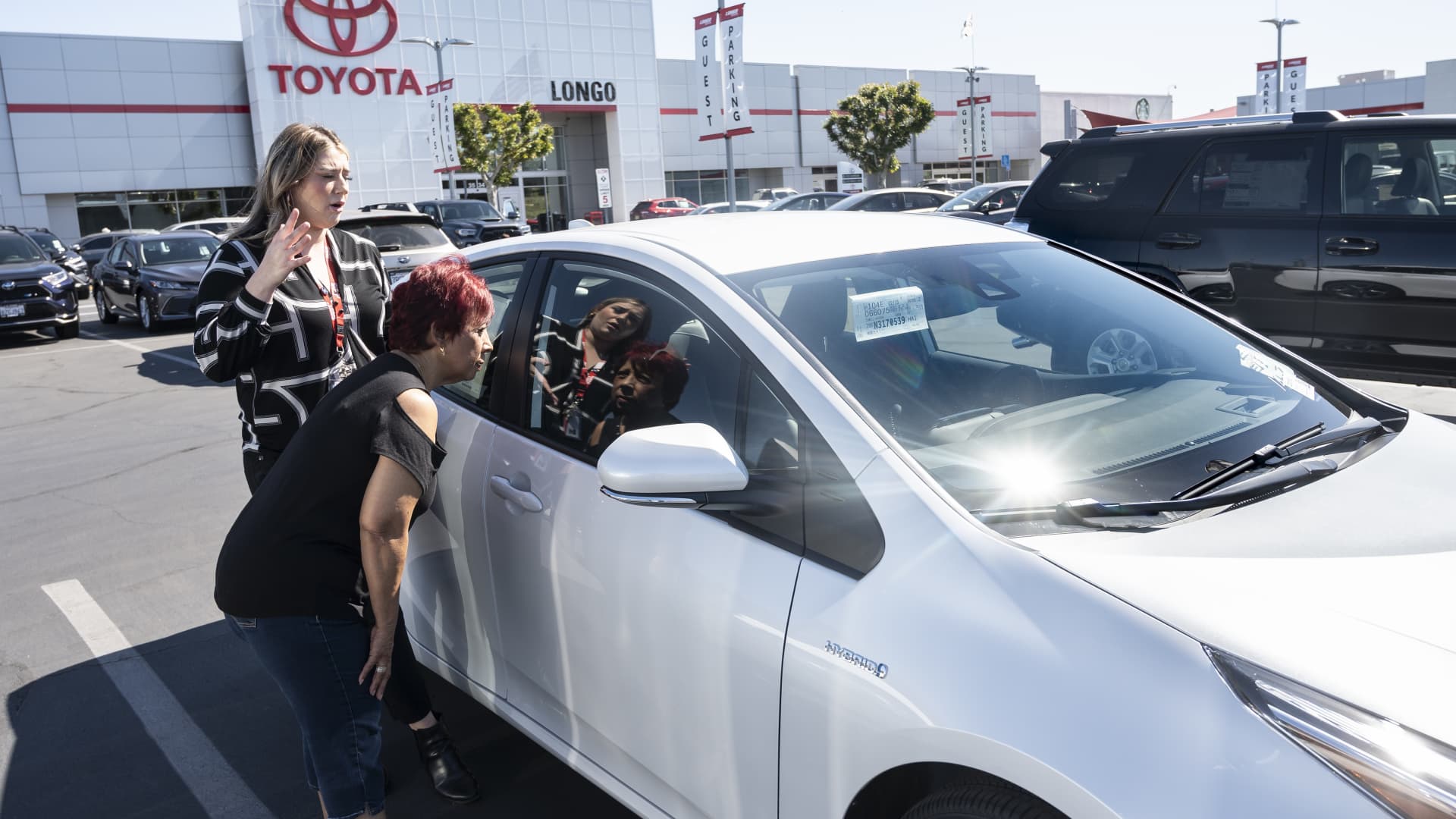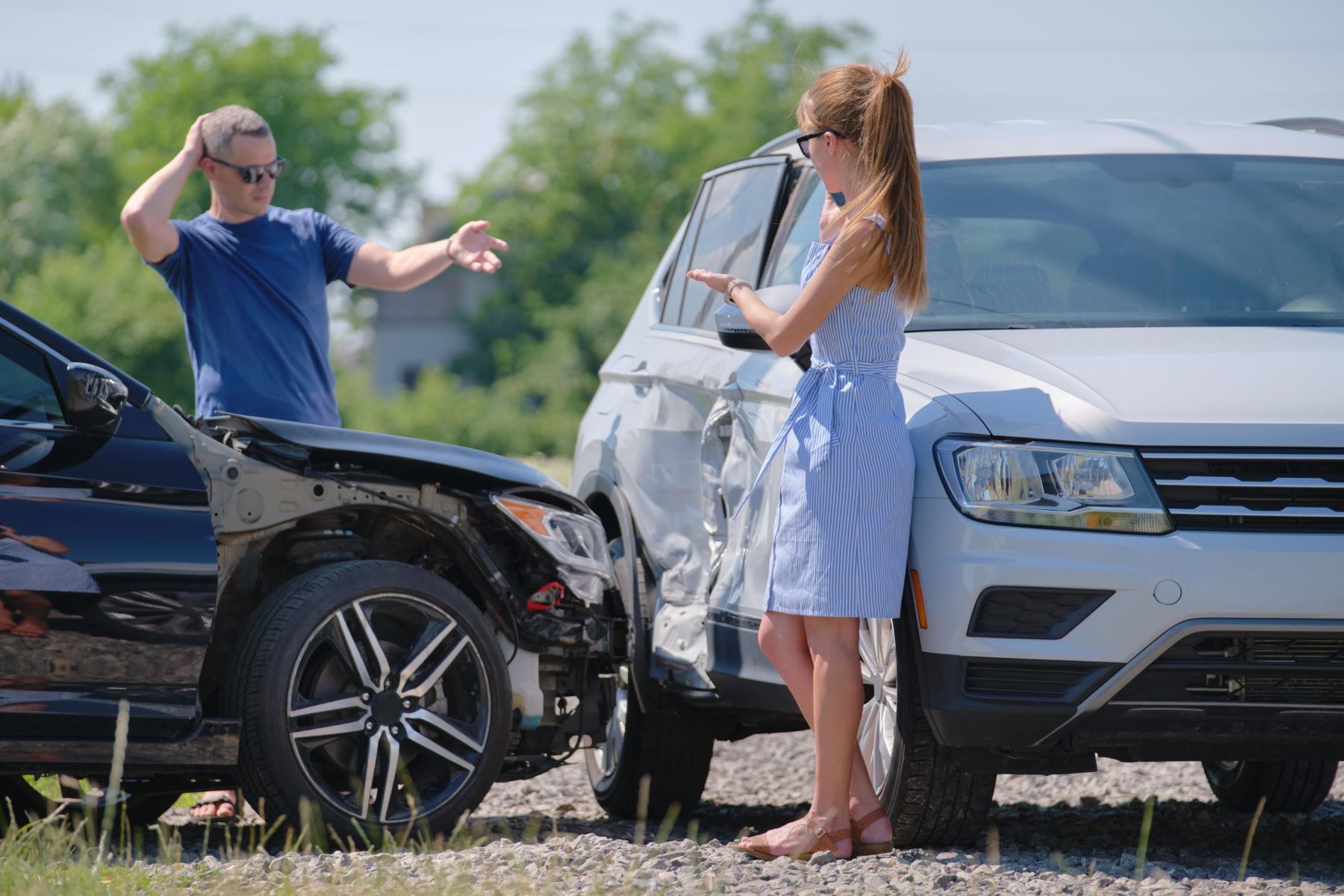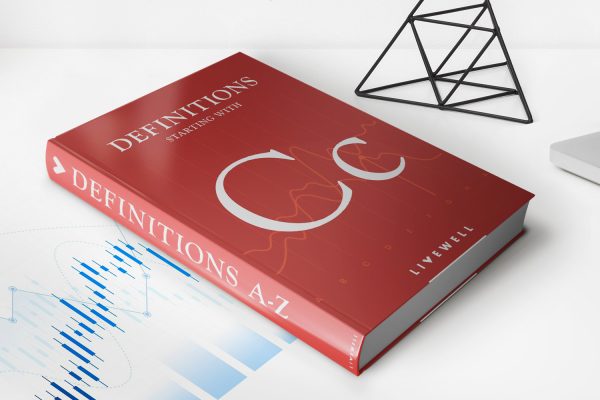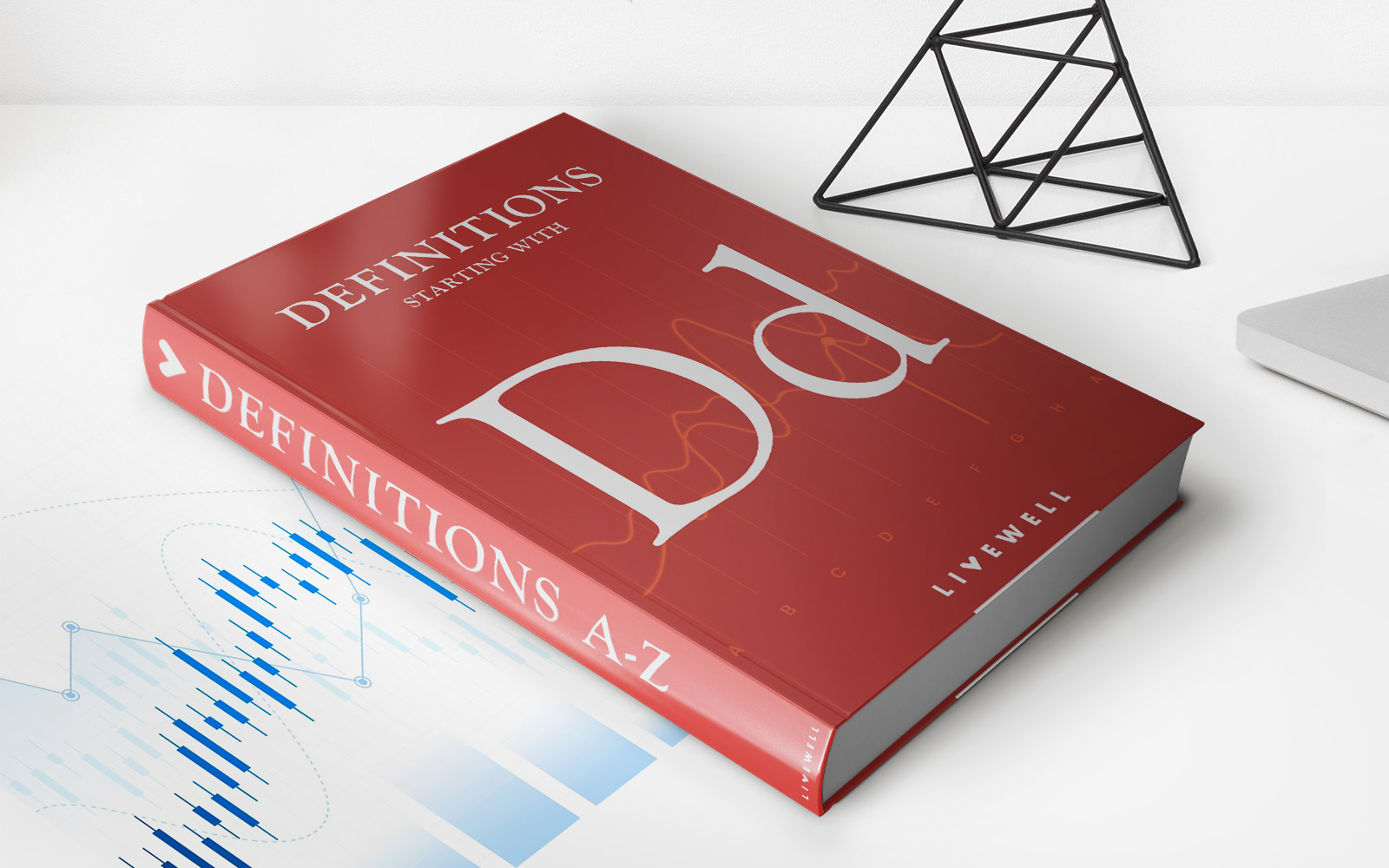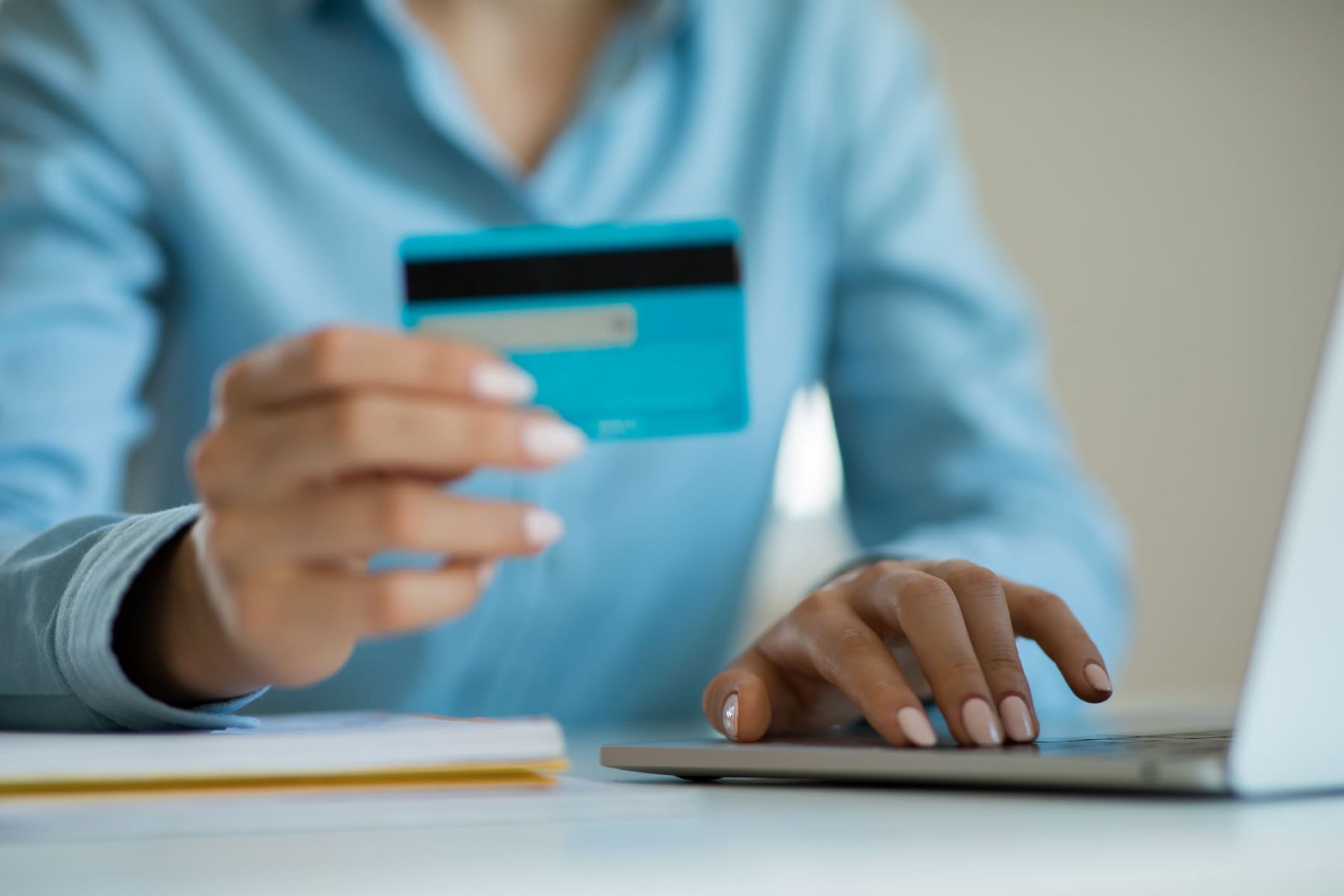Home>Finance>What Happens If You Drive Someone Else’s Car Without Insurance
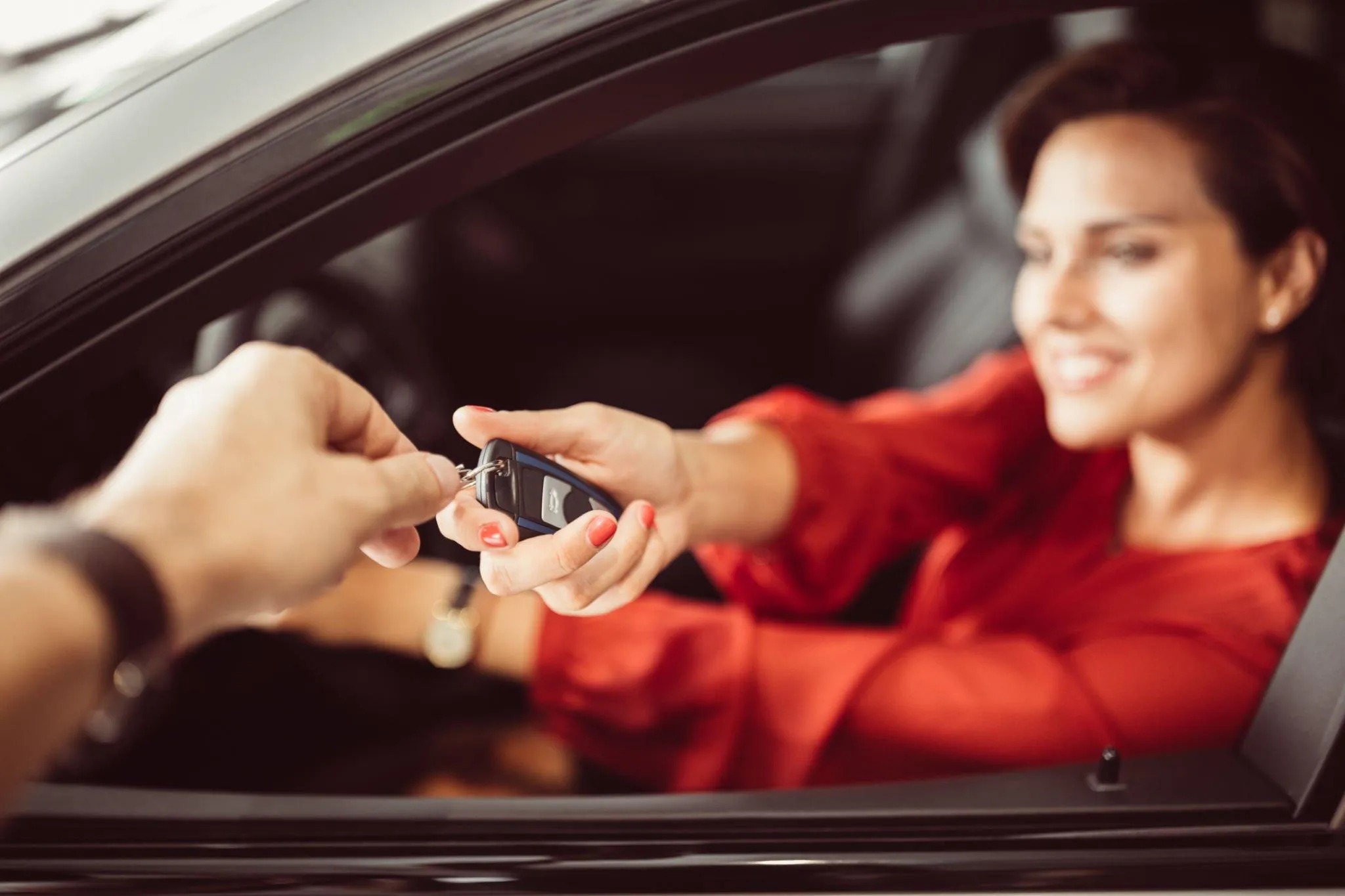

Finance
What Happens If You Drive Someone Else’s Car Without Insurance
Published: November 13, 2023
Driving someone else's car without insurance can lead to serious financial consequences. Protect yourself and ensure you have the proper coverage before borrowing or lending a vehicle.
(Many of the links in this article redirect to a specific reviewed product. Your purchase of these products through affiliate links helps to generate commission for LiveWell, at no extra cost. Learn more)
Table of Contents
Introduction
Driving a car comes with a lot of responsibilities, and one of the most important aspects of being a responsible driver is having adequate insurance coverage. Insurance not only protects you in case of an accident but also provides financial protection for others involved. However, what happens if you find yourself behind the wheel of someone else’s car without insurance?
In this article, we will delve into the intricacies of driving someone else’s car without insurance and the potential consequences you may face. We will explore the importance of liability insurance, the legal penalties that can be incurred, and the financial risks involved. Additionally, we will discuss alternative options for coverage if you find yourself in such a situation.
Understanding the potential ramifications of driving without insurance is crucial to making responsible decisions and avoiding unnecessary hardships. Whether you occasionally borrow a friend’s car or are considering using a family member’s vehicle for an extended period, it is essential to be aware of the legal and financial implications.
Understanding Liability Insurance
Before diving into the specifics of driving someone else’s car without insurance, it’s crucial to understand the concept of liability insurance. Liability insurance is a type of auto insurance coverage that helps protect you if you are at fault in an accident and cause injury or property damage to another person.
When you own a car and have liability insurance, the policy typically covers the car you own and any other vehicles you drive with the owner’s permission. However, liability coverage usually does not extend to vehicles you regularly use but do not own, such as a friend’s or family member’s car.
Liability insurance is a legal requirement in most states, as it ensures that drivers have the means to compensate others for any damage or injuries they might cause in an accident. It provides a safety net for both the insured driver and other individuals involved in the incident.
The two main components of liability insurance are bodily injury liability and property damage liability. Bodily injury liability covers medical expenses, lost wages, and other damages suffered by someone else in the event of an accident you are at fault for. Property damage liability covers the cost of repairing or replacing other people’s property damaged in an accident you caused.
It’s important to note that liability insurance typically does not cover injuries or damages to the insured driver’s vehicle or personal property. For that, additional coverage like comprehensive and collision insurance is necessary.
Now that we have a basic understanding of liability insurance, let’s explore what happens when you drive someone else’s car without insurance.
Driving Someone Else’s Car: The Basics
There are numerous reasons why you might find yourself behind the wheel of someone else’s car. Perhaps your vehicle is in the shop for repairs, or you simply need to borrow a friend’s car for a specific purpose. Regardless of the situation, it is essential to understand the implications of driving someone else’s car without insurance.
Typically, auto insurance coverage follows the vehicle rather than the driver. This means that if you borrow someone else’s car, their insurance policy will generally provide primary coverage in the event of an accident. However, this is contingent upon the owner of the vehicle having an active auto insurance policy.
If the owner of the car has insurance, their policy may extend coverage to you as a permissive driver, meaning you have their permission to drive the vehicle. In this case, their liability coverage should protect you in case of an accident. However, it’s essential to verify this with the owner and the insurance company to ensure you are adequately covered.
On the other hand, if the owner of the car does not have insurance or has insufficient coverage, it can leave both parties vulnerable. In such cases, if you are driving their car without your own insurance policy, you may be at risk of financial responsibility for any damages or injuries caused in an accident.
Additionally, even if the owner of the car has insurance, their coverage may not include certain scenarios, such as if the driver is uninsured or if they were using the vehicle for commercial purposes at the time of the incident. It’s crucial to read and understand the specific provisions of their policy to determine if you are adequately protected.
It is worth noting that some insurance policies may include an “excluded driver” provision, which means that certain individuals are explicitly excluded from coverage when driving the insured vehicle. If you are listed as an excluded driver on the owner’s policy, their coverage may not extend to you.
To avoid any ambiguity or potential risks, it is highly recommended to contact the insurance company directly to clarify the extent of coverage when driving someone else’s car. This will help ensure that you are protected in case of an accident and will help you make informed decisions about whether you need additional coverage.
Now that we understand the basics of driving someone else’s car, let’s explore the consequences of driving without insurance in such a situation.
Consequences of Driving Without Insurance
Driving without insurance can have severe consequences, regardless of whether you are driving your own car or someone else’s. When you operate a vehicle without the necessary insurance coverage, you are putting yourself, others on the road, and your financial well-being at risk.
One of the primary consequences of driving without insurance is the potential legal penalties. In most jurisdictions, driving without insurance is a violation of the law and can result in fines, license suspension, and even legal action. If you are caught driving without insurance, you may face hefty fines that can range from a few hundred to several thousand dollars, depending on the jurisdiction and the repeat offense.
In addition to fines, driving without insurance can lead to the suspension or revocation of your driver’s license. Losing your driving privileges can have significant consequences, including difficulty commuting to work, attending school, or conducting daily errands. Getting your license reinstated often involves paying reinstatement fees, providing proof of insurance, and potentially attending mandatory driver education programs.
Furthermore, driving without insurance can expose you to significant financial risks. If you are at fault in an accident and do not have insurance, you may be personally held liable for the damages and injuries caused. This means you could be responsible for paying for medical expenses, property damage, and any legal fees resulting from lawsuits brought against you by other parties involved in the accident. These costs can quickly add up and result in financial devastation.
Additionally, driving without insurance can have long-term consequences on your auto insurance rates. Insurance companies view uninsured drivers as high-risk individuals, and having a history of driving without insurance can result in higher premiums or difficulty obtaining coverage in the future. This can make it more challenging and expensive to secure insurance when you do decide to obtain coverage.
It is essential to note that the consequences of driving without insurance may vary depending on the jurisdiction and the specific circumstances. Some regions have stricter penalties and enforcement measures, while others may offer alternative options, such as fine reductions for first-time offenders who promptly obtain insurance coverage.
Ultimately, driving without insurance is a risky move that can have severe consequences. It is essential to prioritize your own and others’ safety by ensuring you have the necessary insurance coverage before operating any vehicle, whether it’s your own or someone else’s.
Next, let’s explore the specific legal penalties you may face for driving an uninsured vehicle.
Legal Penalties for Driving an Uninsured Vehicle
Driving an uninsured vehicle is not only risky but can also result in significant legal consequences. The penalties for driving without insurance vary by jurisdiction, but they typically involve fines, license suspension, vehicle impoundment, and even criminal charges in some cases.
In many states and countries, driving an uninsured vehicle is considered a traffic offense, and the penalties can range from monetary fines to points on your driving record. The specific fines can vary significantly, depending on factors such as whether it is your first offense, the duration of time without insurance, and if any other offenses were committed simultaneously. Fines can range from a few hundred dollars to several thousand dollars.
License suspension is another common penalty for driving without insurance. In many jurisdictions, if you are caught driving without insurance, your license may be suspended for a designated period. During the suspension, you may have limited or no driving privileges, depending on the jurisdiction’s laws. Reinstating your license typically involves paying fines and providing proof of insurance.
In some cases, law enforcement may also impound the uninsured vehicle. This means that your car will be towed and held until you can provide proof of insurance or pay the necessary fines and fees. Recovering your impounded vehicle can be a time-consuming and expensive process.
In more severe cases, driving an uninsured vehicle can result in criminal charges. If you are involved in a serious accident or have a history of driving without insurance, you may be charged with a misdemeanor or even a felony. Felony charges can result in significant fines, probation, and even imprisonment.
It is crucial to understand that the legal penalties for driving without insurance can have long-term consequences. They can impact your ability to get insurance in the future, increase your insurance premiums, and make it more challenging to obtain employment that requires a clean driving record.
It is always best to follow the law and ensure that you have proper insurance coverage before operating any vehicle. Taking the risk of driving without insurance can lead to severe legal and financial repercussions that are not worth the potential consequences.
Next, let’s explore the financial risks involved in driving without insurance.
Financial Risks of Driving Without Insurance
Driving without insurance exposes you to significant financial risks that can have long-lasting consequences. If you are involved in an accident and do not have insurance coverage, you may be personally responsible for paying for the damages and injuries, which can lead to financial ruin.
When you drive without insurance, you are taking on the financial liability for any property damage, medical expenses, and legal costs that may arise from an accident you cause. This means that if you collide with another vehicle, damage someone’s property, or cause injuries to others, you may be held personally responsible for the associated expenses.
Medical expenses can quickly skyrocket in the event of a car accident. If you are at fault and do not have insurance, you will likely be responsible for paying for the medical bills of the injured parties involved in the accident. This can include hospital stays, surgeries, physical therapy, and ongoing medical treatments. The costs can be overwhelming and could potentially drain your savings or result in significant debt.
Property damage is another financial risk of driving without insurance. If you’re involved in an accident and cause damage to another person’s vehicle or property, you may be liable for repairing or replacing the damaged property. Whether it’s a simple fender bender or a more severe collision, the costs of repairing or replacing vehicles, structures, or other damaged property can be substantial.
Add to that the potential legal costs if the injured party decides to file a lawsuit against you. Legal fees, court costs, and settlements can quickly accumulate and leave you in a dire financial situation. Even if you have some personal assets, they could be at risk of seizure to satisfy the claims against you.
Furthermore, driving without insurance can have a negative impact on your future insurance premiums. If you are involved in an uninsured accident, it will likely be recorded on your driving record and can result in higher insurance rates in the future. Insurance companies consider uninsured drivers as high-risk, and as a result, they may charge higher premiums or even deny coverage altogether.
These financial risks highlight the importance of having the necessary insurance coverage before getting behind the wheel. By being properly insured, you can protect yourself from potential financial devastation and ensure that you have the necessary resources to cover any damages or injuries caused in an accident.
Next, let’s explore alternative options for coverage if you find yourself driving someone else’s car without insurance.
Alternative Options for Coverage
If you find yourself driving someone else’s car without insurance, there are a few alternative options available to ensure you have the necessary coverage and protection:
1. Non-owner Car Insurance: Non-owner car insurance is a type of insurance policy designed for individuals who frequently drive vehicles they do not own. This type of policy provides liability coverage in case you are at fault in an accident while driving someone else’s car. Non-owner car insurance can also provide additional coverage options like uninsured/underinsured motorist coverage and medical payments coverage. It’s important to note that non-owner car insurance typically does not cover physical damage to the vehicle itself.
2. Temporary Car Insurance: If you plan on driving someone else’s car for a short period, temporary car insurance may be a viable option. Temporary car insurance policies can provide coverage for a specific duration, typically ranging from a few days to several weeks. This type of coverage allows you to get the necessary insurance protection without having to commit to a long-term policy.
3. Borrowed Car Coverage: Some insurance policies may offer a “broadened coverage” option that provides insurance for vehicles you borrow on an occasional basis. This coverage is typically an add-on to an existing policy and extends your liability coverage to borrowed vehicles. However, it’s crucial to confirm with your insurance provider whether this option is available and what the specific terms and conditions are.
4. Rental Car Insurance: If you are driving a rental car, it’s important to understand that rental car companies typically offer insurance coverage options. While these policies may come at an additional cost, they can provide the necessary coverage for the duration of your rental period.
5. Explore Other Coverage Options: In some cases, the owner of the vehicle may have additional coverage options that can be extended to you as a driver. This can include adding you as a listed driver on their policy or exploring non-standard insurance policies that cater to unique situations.
It’s essential to communicate openly with the owner of the vehicle and consult with insurance professionals to determine the best alternative option for coverage in your specific situation. Remember that driving without insurance is not a responsible or prudent choice, and it is always better to be adequately insured to protect yourself and others on the road.
To conclude, driving someone else’s car without insurance can have severe consequences, both legally and financially. However, by exploring alternative coverage options and ensuring that you have the necessary insurance protection, you can mitigate these risks and drive with peace of mind.
Conclusion
Driving someone else’s car without insurance is a risky decision with potential legal, financial, and personal repercussions. Understanding the importance of liability insurance and the potential consequences of driving uninsured is crucial to making responsible choices and protecting yourself and others on the road.
Liability insurance provides essential coverage in case you are at fault in an accident and cause injury or property damage to another person. However, it’s important to recognize that liability coverage typically does not extend to vehicles you regularly use but do not own.
When driving someone else’s car, it’s essential to confirm whether their insurance policy covers you as a permissive driver. Verifying coverage with the owner and the insurance company is crucial to ensure you are adequately protected and to avoid potential legal and financial risks.
The consequences of driving without insurance can be severe. Legal penalties can include fines, license suspension, vehicle impoundment, and even criminal charges in some cases. Moreover, driving without insurance exposes you to significant financial risks, as you may be personally liable for damages, injuries, and legal fees resulting from an accident.
Fortunately, there are alternative options to consider if you find yourself driving someone else’s car without insurance. Non-owner car insurance, temporary car insurance, and borrowed car coverage are some alternatives that can provide the necessary protection. It’s important to explore these options and discuss them with insurance professionals to determine the best course of action for your specific situation.
In conclusion, driving without insurance is not worth the risks it poses. Prioritizing the safety of yourself and others on the road means ensuring you have the necessary insurance coverage before operating any vehicle, whether it’s yours or someone else’s.
Remember, responsible driving includes not only following traffic laws but also being adequately insured. By doing so, you can protect yourself, your passengers, and others on the road, while avoiding legal trouble and potential financial hardship.
